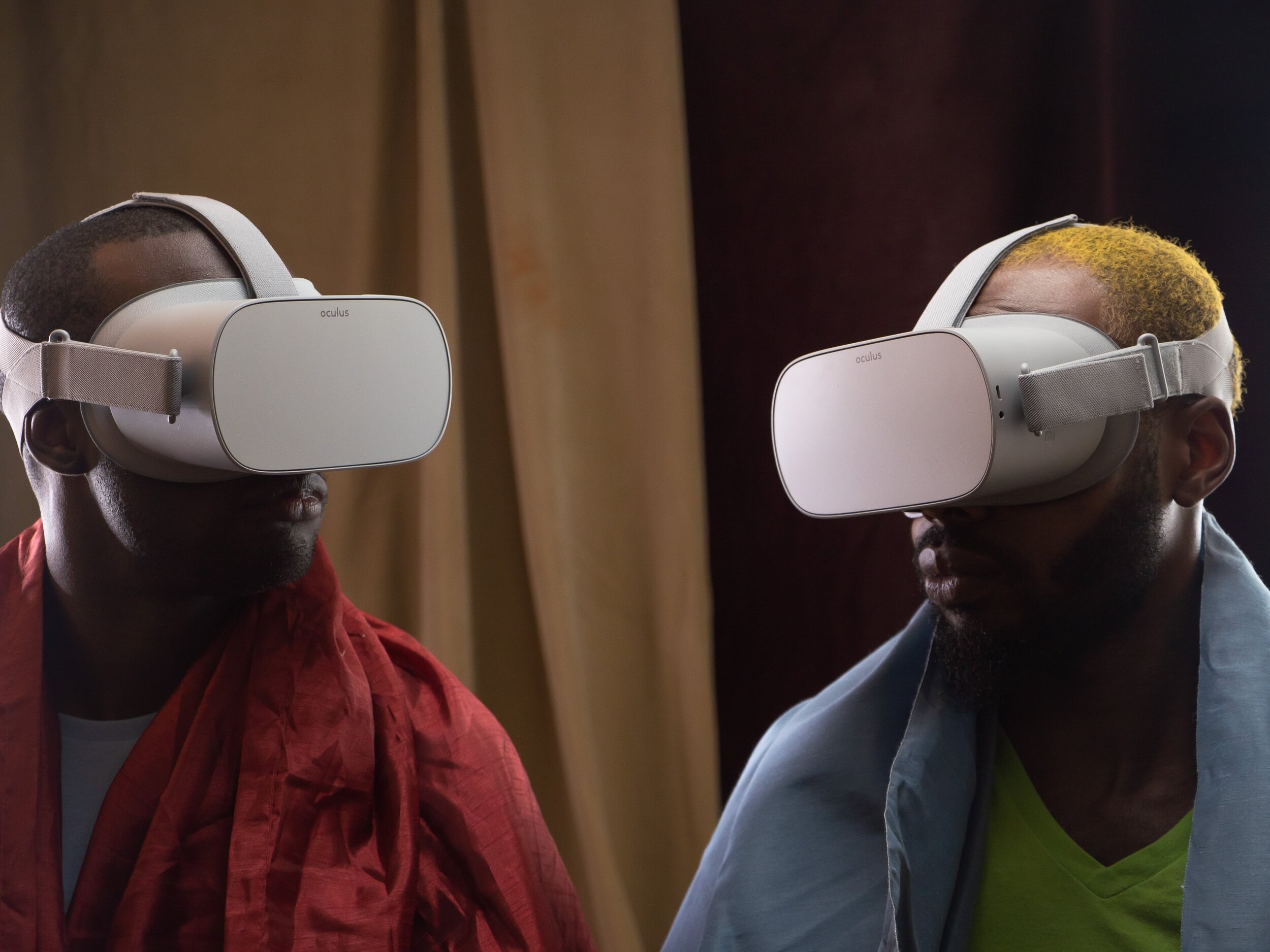I Don’t Want to Be an Elder If I Have To Hold the Trauma
In recent years, when the title of elder has been placed upon me, I’ve always rejected it. Not just because I felt too young, but also because I believed that being an elder was something you earned. And I did not believe I’d earned it yet. I still don’t.
What I have come to understand is that much of being an elder is really about who survives, and who is left to tell the story. In this sense, being an elder for me seems to be about loss, loneliness, and grief. It’s a reminder of the collective trauma that we as Black gay men and so many marginalized communities face—the war that was waged against us, against our bodies and desires that forced too many of us to become ancestors before we became elders. And for those of us remaining—left to become elders prematurely.
In 1999, the blocks between 10th street and 14th street in Midtown Atlanta was the world I entered. This is where I found community, made friends, earned enemies, felt desired and rejected, built community, mourned community, and ultimately became politicized in a way that is no longer possible. This is where I became an activist. This is where I became a leader; my origin story, if you will. Entering that world for me was like visiting Narnia.

‘Instant Dream Home:’ Atlanta Black Gay Firefighter Gets Personal Ahead of Netflix Debut
When my boyfriend, Andre, heard that a new home renovation show was looking for service-oriented men and women impacting their communities, he nominated me for casting. Soon he became a co-conspirator with actress Danielle Brooks (“Orange Is the New Black”), the host of Netflix’s “Instant Dream Home” airing on the streaming platform on August 10.
Andre and Brooks devised a plan to lure me away from my 1930s three-bedroom, three-bathroom bungalow with the help of a team of rapid-fire renovators who transformed my home from top to bottom in just 12 hours. I am honored to be among eight families featured in the series. The show transformed my house into a home. I believe my father, Toye Holmes, is a co-conspirator on this project as well.
My father missed his opportunity to buy a house when I was a little boy in Madison, Wisconsin. His brand new white 1988 two-door Cutlass Supreme, with the spoiler kit and tinted windows, ate up his home buying power. Loan officers frowned upon his debt-to-income ratio. When the bank only offered him $60,000, he said, “Fuck that and them. I ain’t selling my car.” He thought he had more time.
By 1990, my father lost his job at Wisconsin Power and Light, where he was a journeyman. The termination sucker punched my family's finances, causing us to walk on lines just as thin as the lines dad once worked to repair.

Frontline Dispatch: The Pain & Peace of Being in the First Wave of Monkeypox
The most painful symptom during my two-week bout with monkeypox has been the grim understanding that if this were a different era, and the arrival of a different epidemic, any column or essay I wrote about my experience with the illness might’ve been among my last words.
I grieve thinking of how many of our gay ancestors attended a Sunday kickback like the one I went to a couple of weekends ago, played dominoes and laughed at memories; announced goals and made plans for getaways; attributed the queasiness they felt after the gathering to having drank too much on an empty stomach; went a couple of days expecting their sickness to pass, only for those at the kickback to soon learn that their friend was dead.
My sickness seems to be passing, and I’m operating under the assumption that this current outbreak does not have a 100 percent fatality rate or lifelong consequences. However, as a gay man who came of age in the 1980s and ‘90s, I feel the terror of being in the first wave of an emerging epidemic. I’ve spent my adulthood in the fast lane and have always recognized it could lead to early exposure to previously unknown threats, but it’s sobering when you find yourself in a situation that could’ve led to a fiery crash. Fortunately, it has felt more like getting a flat tire, as my monkeypox infection has been relatively mild.

Constructing Our Present For Our Future Selves As Black Gay Men
A few days ago, I emailed some trusted colleagues concerning a documentary project idea. It’s part of how I process. I’m really lucky to have a fairly extensive network of individuals in various sectors that I can reach out to from time to time. Most of my ideas never make it to the manifestation stage because of this incredible vetting process.
I find it useful, even necessary, to think through projects and get feedback before I launch them. If there are red flags or warning signs, potential kinks, or concerns, it’s always good to get solid advice from trusted people. I hope that they will tell me the truth, and they always do. It’s also good in the early stages to register any critical feedback and develop responses, which helps me determine my level of excitement for a project.

Meeting James Baldwin
At the time of writing this, it has been 7 days since I met author and activist James Baldwin, albeit posthumously via a screening of the Raoul Peck-directed documentary I Am Not Your Negro.



